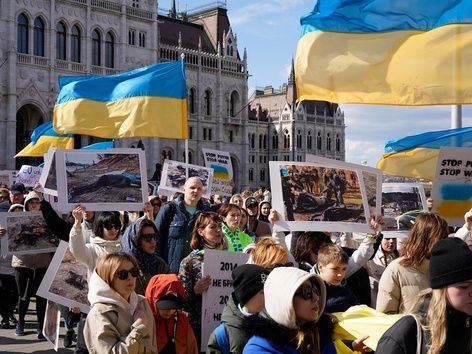
The outbreak of a full-scale war in Ukraine forced a large number of citizens to move to other countries and start a new life there. Despite the short-term challenges, there are a number of positive economic trends for the countries that have hosted Ukrainians. Here's how the war in Ukraine has affected their economies
Russia's full-scale invasion of Ukraine forced many Ukrainians to leave their own country. According to the Office of the United Nations High Commissioner for Refugees, by the end of 2022, almost 8 million Ukrainians were abroad, of which about five million were in EU countries. The departure of Ukrainians became the largest migration wave in the world since the Second World War.
European countries accepted Ukrainian refugees, granted them the status of temporary protection with the right to work, access to health care services, the education system and other social benefits. Similar programs were introduced in many other countries of the world.
According to the IMF, the European Union has spent up to €37 billion to support refugees from Ukraine. This figure is extremely high, but it is about 0.2% of EU GDP.
And although at first glance it seems that the increase in the number of refugees has become a challenge for the economy of individual countries. However, after analyzing the economic trends and data on Ukrainians' spending abroad, we can come to the conclusion that despite short-term challenges, in the medium term there are a number of positive economic trends for countries that have accepted Ukrainians.
The influence of Ukrainian refugees on small and medium-sized businesses of host countries
Ukrainians spend money abroad on the purchase of food products, transport, housing rent, entertainment, etc. The increase in the number of consumers has a positive effect on small and medium-sized businesses and thus stimulates economic growth. For example, in connection with the increase in the population, the demand for food increases, the number of visitors to restaurants and cafes increases, more people buy electronics, household appliances, clothes and shoes, etc. Ukrainians enjoy the benefits of their countries of residence and increase profits for local enterprises.
According to the National Bank of Ukraine, spending by Ukrainians abroad in 2022 amounted to $2 billion per month, which is more than three times higher than the previous year. It is worth noting that many Ukrainians cover certain expenses with savings in Ukrainian banks using cards for payments or cash withdrawals. Poland and Germany became the leaders among countries in terms of the number of non-cash payments. In Poland, this indicator is 28% of the total number of operations, and in Germany - 10%. Another source of financing the refugees' expenses was the salary received in the countries of temporary residence.
The impact on retail trade was most felt on the economies of Poland, the Czech Republic and Estonia. The IMF study predicts that by 2026, the contribution of Ukrainians to the economies of Estonia, Poland and the Czech Republic will be 2.2%–2.3%, in Germany – 0.6%–0.65%.
Trends in the world labor market in connection with the increase in the number of Ukrainian workers
Ukrainians are actively integrating into the labor market of their countries of residence. For example, in Poland, of the approximately 1.2 million refugees who received social security numbers, about half have found work. The majority work in logistics, industrial production, agriculture, construction and hotel business. Many Ukrainians are highly skilled workers.
The Center for Migration Studies at the University of Warsaw reported that employed Ukrainians paid about $2.4 billion (10 billion zlotys) in taxes. This amount exceeds the financial aid that was provided to Ukraine (without taking into account the cost of educational and medical services).
It is interesting that in Poland, Ukrainians not only find work, but also open their own companies. According to PIE estimates for Business Insider, in the first three quarters of 2022, Ukrainians opened more than 10,000 of their own businesses in the state - these are hairdressers, beauty salons, software companies, and firms offering construction and repair services.
In Estonia, about 55% of Ukrainian refugees of working age with temporary protection have already found work, in Lithuania this share is approximately 50%. On the other hand, only about 21% of Ukrainian refugees were able to get a job in Ireland.
German analysts note that Ukrainians are more educated and integrate much faster into the German labor market (compared to migrants from other countries). About 72% of adult Ukrainians who arrived in Germany have a higher education.
The latest sociological polls say that 37% of Ukrainian refugees would like to stay permanently or at least for a few years after the end of the war in the country that provided asylum. It is expected that under the influence of the increase in the number of workers from Ukraine, employment in the EU may increase by 0.4%. The strongest impact will be in the Czech Republic (2.2%), Poland (2.1%), Estonia (1.9%) and several other countries (1%–1.5% in Hungary, Latvia, Slovakia, Lithuania and Romania).
Despite certain challenges faced by host countries in the first months of a full-scale invasion due to the increase in the number of migrants, the benefits for the economies of these countries in the medium and long term are higher due to the active integration of migrants into the labor market and society as a whole. According to Oxford Economics experts, if 650,000 Ukrainian migrants remain in Poland after the war, the country's GDP will increase by 1.2%, and if 1 million, the additional growth will be 2%.
How did the migration of russians affect the world economy?
The war in Ukraine also caused emigration of russians. Almost 900,000 residents left the country in just three waves of migration - these are political migrants, men who refuse to serve in the army, and political refugees.
The most popular destinations were Georgia (over 112,000 migrants), Turkey (over 100,000 russians), Armenia (about 50,000 people), Serbia, Central Asian countries - Kazakhstan, Kyrgyzstan, Uzbekistan, etc., Argentina, Israel, etc.
• The influence of russian migrants on the economy of Georgia
The arrival of new residents contributed to a more stable development of the Georgian economy and strengthened the national currency - the Georgian lari. There is also a significant increase in the value of real estate in the country. In November 2022, average property prices were 210% higher than a year earlier. Georgia's economy will benefit from increased capital inflows. According to the National Bank of Georgia, between February and October, russians transferred $1.412 billion to Georgian accounts — four times more than the $314 million transferred during the same period in 2021. Russians also opened more than 45,000 bank accounts in Georgia.
• Turkey
According to government data, Turkey granted residence permits to 118,626 russians in 2022. Migrants became leaders in the number of purchased real estate in the country in 2022. The increase in demand led to an increase in the cost of rent, and the price per square meter when purchasing real estate also increased.
According to the report of the russian news portal RBC, last year the residents of russia transferred more than 2.5 billion dollars to Kyrgyzstan and more than 3 billion dollars to Armenia. Uzbekistan received $14.5 billion, twice as much as in 2021, while Kazakhstan received $775 million.
Many russian migrants are highly qualified, particularly IT sector workers. At the end of December, the Ministry of Communications of russia said that about 10% of IT workers, or more than 100,000 people, left the country in 2022 and did not return. Also, many migrants opened their own business in the host countries.
The war in Ukraine affected the economy of many countries around the world. However, highly qualified migrants actively integrate and contribute to the economic development of the states of temporary residence.
We remind you! For more than a year of war, russia has launched thousands of strikes on civilian infrastructure. The easiest way to protect yourself is through insurance. Read more about how insurance companies operate during martial law in our article.
You may be interested in:
Visit Ukraine Donation - make a good deed and an important contribution to the Victory of Ukraine;
Visit Ukraine Tours - the largest online database of tours to Ukraine for every taste;
Visit Ukraine Merch - choose patriotic clothing and accessories with worldwide delivery;
Visit Ukraine News - get the latest news and updates in our Telegram channel;
Cooperation - cooperation and advertising integrations with Visit Ukraine and Visit World projects.
Recommended articles
1 min
Documents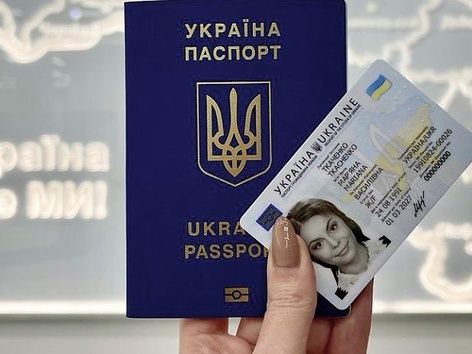
Ukrainian passport service in Cologne: where to get a passport and exchange a driver's license
From now on, Ukrainians staying in Cologne, Germany, will be able to apply for passport documents at the new Passport Service unit. Find out more about the opening hours and location of the new office
22 Apr. 2023
More details1 min
Travel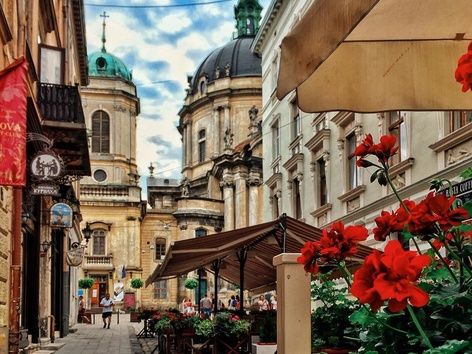
From mystical legends to underground tunnels: a guide to Lviv
Lviv is one of the oldest cities in Ukraine. It is steeped in history and mysterious legends. Find out more about the places that will help you discover the true beauty of this city
22 Apr. 2023
More details1 min
Popular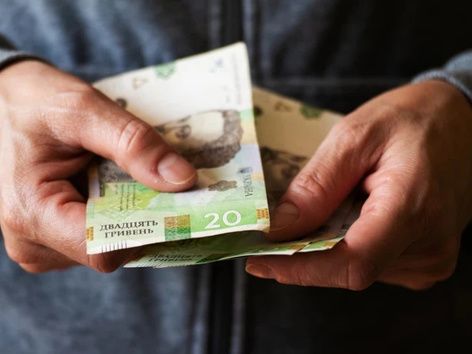
Ukrainians abroad can receive pensions via international transfer: detailed instructions
Citizens of Ukraine of retirement age who have taken refuge abroad can receive their pensions by international transfer. Find out more about how to do this
23 Apr. 2023
More details2 min
For refugees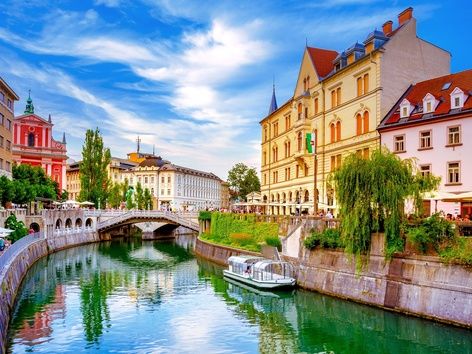
How to Extend Temporary Protection in Slovenia: Instructions for Ukrainians
The Slovenian authorities have extended the validity of temporary protection for refugees from Ukraine who were forced to move to the country. Find out more about whether you need to extend your legal residence permit in Slovenia and other details
23 Apr. 2023
More details

